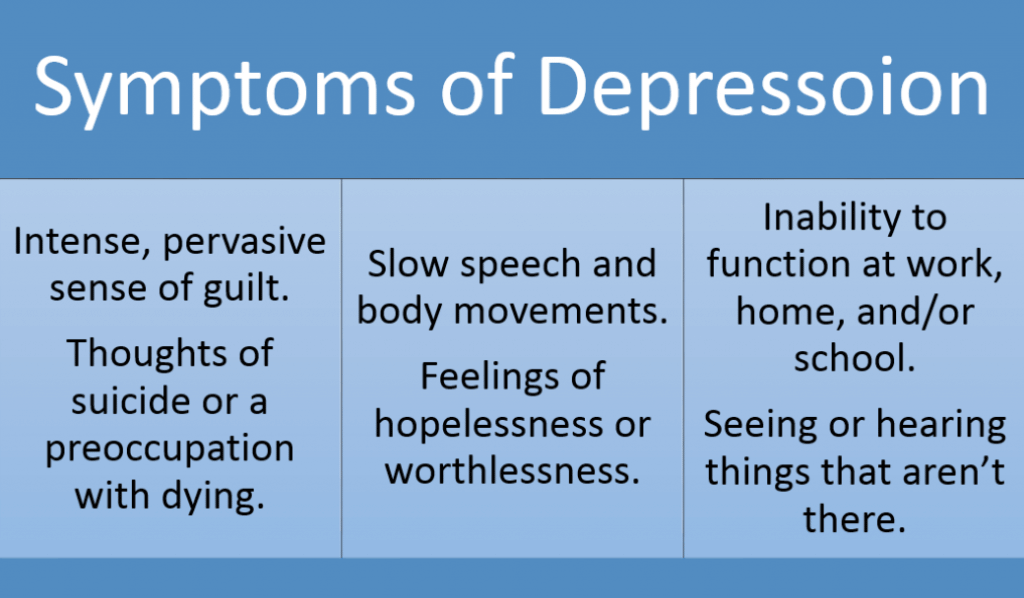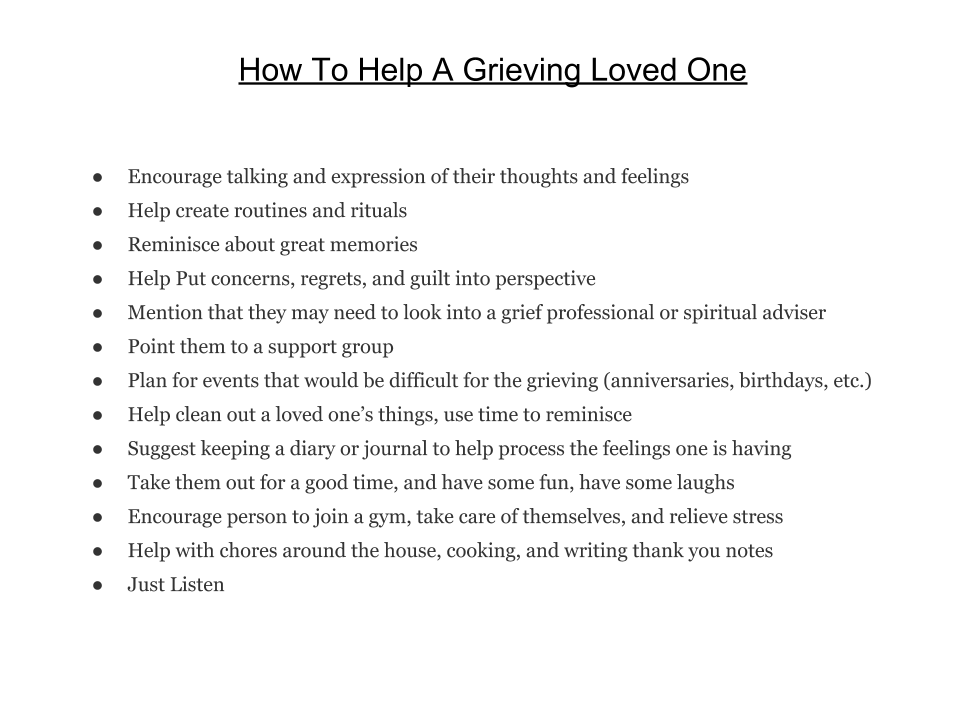Grieving Process: The Definitive Guide To Loss
Grieving is a part of home care, even though our job is meant to bring families together. By providing care for the seniors, we eliminate many of the chores, duties, and personal care that can weigh down and overwhelm a family caregiver.
Our goal is to take those burdens away, so that families can spend quality time together, rather than spending that time doing less than desirable chores.
Death is a part of life, and a part of aging. While we care for older adults, they can fall sick, have strokes, have heart attacks, and sudden death can occur. When someone passes, we see families begin the grieving process.
Patients with deteriorating diseases like Alzheimer’s, ALS, and Parkinson’s may have much longer to live, but they have an incurable disease. So hospice and grieving do come with home care jobs, which is why we wrote a guide on understanding grieving and how it affects people.
In the guide on grieving process, you will learn:
- Types of loss
- Stages of grief
- Difference between depression and grieving
- Myths of grieving
- Different emotions of loss
- How to help a grieving person
- Taking care of yourself
- Kübler-Ross Grief Cycle
- Coping with reminders
- Tips on how to cope
Types of Loss
There are different types of loss that can be very personal. Only you know what is significant to you. People can associate losses with strong feelings of guilt. These types of events include:
- Death of family members
- Death of a partner
- Relationship breakups
- Serious illness of a loved one
- Loss of a close friend
- Death of a classmate or colleague
There are other more subtle types of losses the can bring strong feelings of guilt as well. Even though they may not be considered “major losses”, they can still bring these feelings. These types of events include:
- Leaving home
- Illness/loss of health
- Pet dying
- Change of a job
- Moving away from a home
- Graduation from a school
- Loss of a physical ability
- Loss of finances or financial security
Sudden Vs. Predictable Loss
Sudden and shocking losses can be caused by events like crime, accidents, suicide, or heart diseases and stroke. These can be devastating and traumatic.
There is no way to prepare for these events. These can challenge your sense of security and confidence in your stability and predictability of life. You may experience symptoms like sleep disturbances, nightmares, distressing thoughts, depressions, mood changes, social isolation, or severe anxiety.
Predictable losses, like deaths due to long illnesses, do allow more time to prepare for the person’s passing. These types of deaths can create two layers of grieving: there is the grieving related to the expecting loss, and the grieving related to the death itself.
The Stages of Grieving
Grieving cannot be hurried or expedited. It takes time, usually a year or longer, to grieve properly. There are stages of grieving that are experienced after someone has passed away. Some experience all of these stages, and some do not experience many.
What is important is to understand is that whatever you are feeling is normal, natural, and that in due time, you will heal.
Shock
Feeling numb or in shock is often experienced by people. The reason for death can often determine how much shock someone is in. For families who know of an impending death, there may not be as much shock, while something sudden often brings more shock. Some may never go through a long stage of shock, and they express their emotions quickly, if not immediately.
Release of Emotions
After a death, at some point, a person begins to feel the pain and hurt. Suppressed feelings often surface later in time in unhealthy ways. So try to express your feelings as they come, and do not bottle them up inside. By expressing your feelings, you will welcome others in your family to open up and begin the healing process as well.
Preoccupation
When someone passes, many people try and help the person “take their mind off of it.” Though the gesture is sincere, a grieving person may find it very difficult to focus their thoughts away from the deceased person. This is not unusual, and over time should not be an ongoing problem.
Physical and Emotional Distress Symptoms
These symptoms come in waves. The most common physical symptoms are:
- Poor appetite
- Digestive issues
- Empty feeling In stomach
- Lack of energy/physical power
- Shortness of breath
- A feeling of choking
- Sleeplessness
- Tightness in throat
The symptoms associated with emotional distress are:
- Dream-like feelings. Detached from reality (“This Can’t Be Real”)
- Feelings of emotional distance from people
- Panic
- Thoughts of self-destruction
- Feeling to “Run away from it all”
- People may appear shadowy or very small
- Feeling that you are “going crazy”
- Difficulty concentrating
- Wanting to escape
- Feeling ambivalent
These feelings may cause alarm for friends and family of the grieving party, but they are normal.
Angry/Hostile Reactions
Some find themselves reacting with a lot of anger to the situation at hand. This boils over into normal day to day situations that normally would not bother the person.
This can make people uncomfortable and worried about the person that is feeling the anger. They might be angry at the doctor, God, the deceased, nurses, or any other amount of people who were involved along the way.
Some may be angry at other family members’ grieving processes. The others are not as distraught or shaken by the loss. Even though this is normal, sometimes the grieving need to be reminded that they are directing their emotions to the wrong person.
Guilt
There is usually a sense of guilt when grieving. The bereaved analyze what else could have been done, but was not. They may accuse themselves of not doing enough, and can even feel negligent. Guilt and blaming one’s self is normal, and does pass.
Depression
Many people feel total despair, loneliness, and hopelessness. Nothing seems worth doing, and there is no reason to get out of bed anymore.
Withdrawal
Grieving individuals can often withdraw from social relationships, including their daily routines. It may all seem like a bad dream to them, but with time and effort, the individuals will overcome this social withdrawal.
Resolution
Time may not heal all wounds, but over time, people gradually resolve many feelings, and readjust to a more normal lifestyle. The love for the person gone is still there, as are the memories, but they begin to move on with life. Acceptance of the pain and hurt emotions allows people to move on and grow with understanding of the situation and wisdom to pass on to others when they experience grieving.
Difference Between Grieving and Depression
Understanding and recognizing the difference between grieving and depression is not always easy. They both share many of the same symptoms. Grieving can be a roller coaster, and it involves many different emotions, and mixes of good and bad days. Even when you are in the middle of the process, you will have moments of happiness and joy. When you are in depression, life consistently feels empty.
Myths of Grieving
- MYTH: It is important to “be strong” when dealing with a loss.
TRUTH: Feeling emotions in a normal part of grieving. While some may not show emotions, others will. Feeling sad and lonely are normal reactions. Crying is normal, and does not mean someone is weak. There is no need to protect your family and friends from the emotions you are feeling.
- MYTH: Ignoring pain will make it go away.
TRUTH: Ignoring the pain may only make it worse in the long run. Real healing begins when you face grief head on and deal with it.
- MYTH: If you do not cry, you are not sad or sorry about the loss.
TRUTH: While crying is a normal response to someone passing away, it is not always the only one. Those who do not cry may feel the pain, but just have different ways of showing it.
- MYTH: Grieving lasts one year.
TRUTH: Nothing could be further from the truth. People grieve in different ways, and at different time lengths. Some it may be a few months, while others years. There is no “right” time table
- MYTH: You are forgetting a loved one by moving on with life.
TRUTH: By moving on, you have decided to accept the passing of a loved one. This is totally different than forgetting about them. You have memories that will last a life time, and that person will always be with you.
- MYTH: Friends bringing up the subject are not helping.
TRUTH: People who are grieving over the loss of a loved one do like to talk to close friends. The death is on their mind, and they may want to talk about it. Bringing up the subject may make it easier for them to open up about it.
The Different Emotions of Loss
Disbelief
After someone has passed away, it can be hard to accept the death. People can try and deny the death, can feel numb to it, can be in shock, or expect to see them on the regular schedule, as though they were alive.
Guilt
It is normal to feel that you could have done more and to analyze what you can have done better. People feel guilty about what they failed to do, say, or could have done.
Physical Issues
The stress of guilt and loss can strain your body to the point where you lose or gain weight, have anxiety, and get sick because your body cannot fight off disease.
Fear
When a loved one passes, it is not uncommon for people to face their fears about disease, sickness, and dying. Some may fear life without the one they lost and taking on new responsibilities in life.
Anger
Some feel angry at the departed, and feel that it is unfair to be left alone, while others may feel deserted or angry at them for making choices that contributed to their disease and death. Others may need to blame others like God, doctors, or others.
Spasms
Many people have emotions which can come and go. Some days are better than others. Out of nowhere, there can be a trigger of extreme sadness and remorse. It is normal to have these swings in emotion.
Taking Care of Yourself
One of the most important, but most neglected, items when a person caring for terminal loved one or grieving for one does not take care of their own health.
When grieving, your body is going through an immense amount of stress, and your immune system can be weakened by not taking care of yourself. This leads to greater chances of illness and disease on the part of the grieving.
Here are some tips to take care of yourself, both mentally and physically:
- Laugh – Keep your sanity by going to a funny movie, a comedy club, or hanging out with friends that make you smile. Laughter releases endorphins, which can make you feel better.
- Sleep – Get enough of it. Sleep deprivation is not good, it lowers the immune system, prevents the brain from cleaning out waste, and invites disease into the body.
- Relax – Getting a massage, taking a yoga class, reading, or meditating are all ways to clear your mind and allow you to decompress.
- Personal Activities – Make time for yourself, and do the things you love to do.
- Support – Find local or online support groups to find people going through similar situations to talk to, vent, and learn from one another.
- Process – Write in a journal to track your thoughts, and put your feelings on paper to later reflect on.
- Exercise – Stress is always relieved through exercise. Going for a run every day energizes you, keeps you healthy, lets you think, and eliminate stress. (Personal Note: When my mother died of cancer, I ran 5 miles a day. It helped a lot.)
- Information – Find information through books, blogs, and forums that can inform you of what is going on, and how to provide some self-help.
- Therapy – Seek and accept help from friends, family members, or professionals as you see fit. Not every idea here is for everyone. Find two or three that work for you, and give them a try for a week. See what happens. If they are not for you after that time, try others. See what works for you so that you are taking care of yourself.
The Kübler-Ross Grief Cycle
For many years, people with illnesses that were terminal were considered an embarrassment for doctors. Someone who was incurable was considered evidence of the doctors’ fallibility. Because of this, doctors avoided the dying with the excuse that there was nothing else that could be done for them.
A woman named Elizabeth Kübler-Ross, who was a doctor in Switzerland and rallied against this idea of shunning and ignoring the terminally ill, spent a lot of time with them, both comforting and studying them. She ended up writing a book called “On Death and Dying” which talked about the cycle of grieving, called the Extended Grief Cycle.
It was found that not only was this cycle for terminally ill patients, but was found for people just experiencing bad news. The actual news really did not matter, but since the person perceived it as a significantly negative event, the grief cycle occurred.
The Extended Grief Cycle
The extended grief cycle is below. It shows a roller coaster ride of emotion and activity as a person struggles with this traumatic event in their lives.
The beginning state of this cycle is stable when they subsequently hear the bad news, but then the cycle continues with the ups and downs that occur
The Seven Stages of Grief Cycle
- Shock
- Denial
- Anger
- Bargaining
- Depression
- Testing
- Acceptance
Shock Stage
The initial reaction to hearing the bad news is of classic shock. It may appear there is no reaction at all to the news. The person may nod in understanding and acceptance about what they are hearing, but with no outward sign of being troubled by it. They may need to be told multiple times to fully understand the news.
When this shock occurs, the person may need to be sat down (to stop them from falling), and given something to drink (mainly so they are holding on to something).
Show them sympathy, understanding, and acceptance. If the shock is not short-lived, help them get to a place where they can sit safely to let it all sink in.
Denial Stage
Trying to avoid the situation and reality is next. Once the shock has worn off, they may pretend that the news was not given. They will ignore evidence shown, and will act as if nothing has happened.
Typically, they will continue normally and keep living life as before. You can help move the person out of denial by provoking them to anger.
Show them the future, so that they cannot deny what has happened. Tell them that this is not fair to act this way, and show your anger to them.
Anger Stage
An outpouring of emotion is next, which is a swing into anger. This usually comes with an explosion of emotion, which has been bottled up because of shock and denial stages.
Whoever is in the way is likely to be blamed, which includes family members, doctors, God, friends, or the person who has passed themselves.
“Why me?” and “Why not you?” are maybe common questions for people who have been told horrible health news. This anger is fueled by confusion and not being able to understand how this could have happened.
When someone is this angry, it is best to give them space. This allows them to vent their anger. The more that comes out, the faster the anger will move on.
If this anger becomes destructive, it must be addressed. Remind people of appropriate and inappropriate way to behave. Adjust their anger into more useful channels to allow them to blow of steam in a more constructive way.
Letting them be angry at you is fine. When you are faced with anger, it can develop into an argument, and could push them back into denial, which can cause problems later on.
Bargaining Stage
After the anger has been dissipated, the next state is a desperate round of bargaining. Seeking ways to prevent or avoid this bad event from occurring. Bargaining is a thin expression of hope that this bad event can be prevented.
Bargaining can include seeking alternative therapies or experimental drugs.
If in a work environment (when being laid off) they may be offering to work for less money, offering alternative work, or being demoted, rather than having no job. A person may bring up their loyalties, debts, and their family as reasons that they need to keep their job.
When people are bargaining, do not offer them false hope. Though it may be something you feel will lessen the pain in the moment, it will just hurt them more in the end.
Depression Stage
Eventually it is inevitable that the news a person heard will sink in, and the person reluctantly accepts what is going to happen. From this, they see only a horrible future, with nothing good coming their way.
This can be seen by a number of passive behaviors, but can also be seen by tearful remorse and an outpouring of emotions.
At this time, the person maybe blaming themselves, while before, they were blaming others. They are taking responsibility of their actions for what has gone wrong.
The best thing to do for this person is to be there for them, accepting them in their current state of misery. People who are depressed feel very much alone, and your company, thought it may not seem that way, is very important to them, and is welcomed.
The next course of action is to keep them moving. It is too easy to be depressed and become sedentary. The longer they are in the mud, the harder it is to get them out. Keep supporting them, showing them that things will get better, and that there is light at the end of the tunnel.
By helping them reach the light, you will help them recognize their depression, and find a way to move forward.
Testing Stage
As a person goes through their depression, they cannot stay in it forever. Eventually, reality starts to set in, and the person realizes that this dark tunnel will end.
They then will start looking for things to do. These may be taken on as “experiments”, to see if these will help the situation they are in. As this activity starts to work, it is found to be preferred to depression. This is when the person start crawling out of their dark hole.
This stage is usually done with the help and support of friends, family, and/or professionals. With the terminally ill, hospice workers help their patients dace their short futures with courage and understanding.
When someone does reach the testing stage, they are on their way out of this grief cycle. Help them anyway you can by trying different solutions to see if it has a positive effect on their future.
Offering them as much control as they can handle gives them some stability, and offers them a lifeline that they can use to pull themselves out and forward.
Acceptance
The final stage. This brings the person back to stability, where the person is ready to move forward with the rest of their life, no matter how short it might be.
The terminally ill will be putting their life into order. They will sort through wills, help others who are going through their own grief cycle of the situation, and move forward with enjoying the time they have left.
Acceptance is usually noticed by the person taking ownership for themselves and their actions. They will begin to partake in activities, take note of the results, and then change their actions in response. They will begin to appear happier and more upbeat as they find their way forward.
This is a very powerful video of living in the now.
Common Issues with the Cycle
There are issues that come up with people going through the grief cycle, they either get stuck or go in cycles.
Getting Stuck
A common issue is that a person gets stuck on one phase of the cycle and cannot move onto the next phase. The person can get stuck in denial, never moving on from denial into anger. This can especially happen if a culture does not accept expressing anger.
The most common stage to be stuck on is depression.
Going in Cycles
Another trap is when a person moves on to the next phase without completing the previous phase. This causes the person to move backward to the phase they have not completed, and then the loop begins again.
Cycling is a form of avoidance of the inevitable, and going back in time may seem like a viable way of extending the time the person has, or extending the time before this bad event happens.
Coping with Reminders after a Loss
As mentioned previously, there is not a precise end date when it comes to grieving. There are reminders of the person who passed, and the reminders often cause a person to feel the pain and sadness of that loss again.
When a loved one does pass, you will be faced with grief over your loss again and again. This can even happen years later. Anniversaries, birthdays, and major family holidays can bring back emotions on missing someone.
These feelings are called an anniversary reaction, and should not be considered a setback in the grieving process. They are a reflection of how much you miss the person, and that he or she was an important part of your life.
Moving forward does not mean there will not be times of reflection and sadness. How you cope with a loss includes reflection about the person when they were alive.
Where Reminders Are Found
Reminders of your loved one will be very tough to avoid. The holidays, birthdays, anniversaries, and other special days that follow a loved one’s death are common triggers.
The calendar is not the only reason you will be reminded of someone. They are often associated with our senses: sights, sounds, and smells. They can hit you out of nowhere and can really ambush you.
You can be suddenly inundated with emotion at the sight of a favorite spot you two shared, or a song that was the soundtrack to a special moment. Every memorial celebration for others can be a trigger for your own loss.
What To Expect When Grief Returns
Anniversary reactions can last for a few minutes or for days. During an anniversary reaction common experiences are:
- Sadness
- Loneliness
- Anger
- Anxiety
- Trouble sleeping
- Fatigue
- Pain
Anniversary reactions can also bring power memories of the events and feelings that surround the death of your loved one. You can remember in great detail what was going on when you found out your loved one has passed.
Tips to Cope for Anniversary Grieving
Years may have passed after a loss, but people may continue to feel sadness when you are confronted with reminders of the person’s death. Though you continue to heal, there a ways you can cope with the reminders of a loss.
Be Prepared
Knowing that an anniversary is coming up, let the people you are with know that it may be a tough time, especially if it is the first year or two of a passing. Expressing your feelings will also let you heal.
Talk About It
Reminiscing about your loved one and the relationship you had can help. Talk about the good times or the funny stories that occurred. Even writing a letter or writing in a journal will acknowledge you miss the person and that you are still thinking of them.
Plan a Distraction
Scheduling a gathering, vacation, or visit with friends and family is a good way to keep your mind off things during tough times. You won’t feel alone, and you can all reminisce about the person together.
New Traditions
Do something that will bring a positive effect to the world in name of your loved one. A charitable donation in their name, planting a tree, or holding a fundraising event all can help bring positive feelings to a tough situation.
Find Others In Similar Situations
Draw friends and family that were close with the deceased. Find someone that you can talk to who is going through the same things. Stay connected with support groups, either in person, online, or over the phone.
Be Open To Emotion
It is okay to be sad and feel a sense of loss. Allow yourself to enjoy life and happiness, and as you celebrate the special times, you may find yourself laughing and crying at the same time.
In the end, grieving can last many years, and the adjustment of missing someone who was with you for many decades does not just go away. Plans for the future where you expected the person to be with you can be devastating.
Grieving takes time, and depending on how unexpected the death is, can determine how bad an anniversary can be.
If Grief Becomes Too Intense
Since there is no time limit for grieving, the anniversary reactions of mourning can leave you feeling overwhelmed. Though this lessens with time, what happens if it becomes too much?
If your grief continues to get worse over time, instead of getting better, or it interferes with your day to day life, a grief counselor maybe needed. Leaving unresolved and complicated grief can lead to depression, grief stuck and cycling, and other mental health issues.
Summary
In the end, everyone deals with the grieving process differently. Some people cry, some feel angry, others pull away, and some reach out for help. There really is no right or wrong way to grieve.
When someone passes away that is close to you, you will go through many of these steps and processes written about in the guide on grieving, but everyone’s process will be unique. Time will help heal the wounds, but never fully. That person will not be forgotten, and there will always be memories, pictures, videos, and other reminders of the person in your life.
If you have questions or comments, please feel free to ask them in our forum, or below in the comment sections, and hopefully our Grieving Process: The Definitive Guide has been a help to you.






